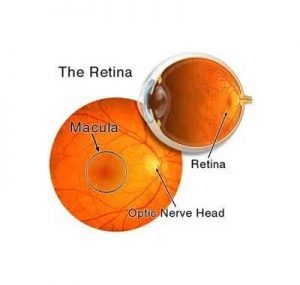- Home
- Editorial
- News
- Practice Guidelines
- Anesthesiology Guidelines
- Cancer Guidelines
- Cardiac Sciences Guidelines
- Critical Care Guidelines
- Dentistry Guidelines
- Dermatology Guidelines
- Diabetes and Endo Guidelines
- Diagnostics Guidelines
- ENT Guidelines
- Featured Practice Guidelines
- Gastroenterology Guidelines
- Geriatrics Guidelines
- Medicine Guidelines
- Nephrology Guidelines
- Neurosciences Guidelines
- Obs and Gynae Guidelines
- Ophthalmology Guidelines
- Orthopaedics Guidelines
- Paediatrics Guidelines
- Psychiatry Guidelines
- Pulmonology Guidelines
- Radiology Guidelines
- Surgery Guidelines
- Urology Guidelines
Oral Vitamin A benefits children with retinitis pigmentosa

Oral vitamin A supplementation is considered to potentially slow loss of retinal function in adults with retinitis pigmentosa and normal liver function but very little data from children with this disease are available.Dr.Eliot L. Berson, M.D., from Harvard Medical School in Boston, and colleagues conducted a nonrandomized comparison study to compare disease courses in children with retinitis pigmentosa taking or not taking vitamin A supplementation.They found that in children with retinitis pigmentosa, vitamin A supplementation is associated with slower loss of cone electroretinogram amplitude.These findings support the hypothesis that vitamin A palmitate can slow loss of cone function in children with common forms of retinitis pigmentosa.The study has been published in JAMA Ophthalmology.
In a retrospective, nonrandomized comparison of vitamin A and control cohorts which was followed up for a mean of 4 to 5 years by the Electroretinography Service of the Massachusetts Eye and Ear Infirmary. The study included children with different genetic types of typical retinitis pigmentosa: 55 taking vitamin A and 25 not taking vitamin A. The main outcome was the mean exponential rates of change of full-field cone electroretinogram amplitude to 30-Hz flashes.
The researchers found that in the unadjusted model, the estimated mean rates of change were −0.0713 loge unit/year for the vitamin A cohort and −0.1419 loge unit per year for the control cohort (−6.9 and −13.2 percent per year, respectively). A slower mean rate of decline was confirmed in the vitamin A cohort in the adjusted model (difference, 0.0771 loge-unit per year). There was no difference by cohort in the mean exponential rates of change of visual field area and visual acuity and the incidences of falling to a visual field diameter of 20 degrees or less or a visual acuity of 20/200 or less in at least one eye.
The authors concluded that "A vitamin A palmitate supplement was associated with a slower loss of cone electroretinogram amplitude in children with retinitis pigmentosa".A vitamin A palmitate supplement was associated with a slower loss of cone electroretinogram amplitude in children with retinitis pigmentosa. Although the relatively small-sample, retrospective, the nonrandomized design does not allow a test of causation and is subject to possible biases, these findings support consideration of an age-adjusted dose of vitamin A in the management of most children with the common forms of retinitis pigmentosa.
For further reference log on to : doi:10.1001/jamaophthalmol.2018.0590

Disclaimer: This site is primarily intended for healthcare professionals. Any content/information on this website does not replace the advice of medical and/or health professionals and should not be construed as medical/diagnostic advice/endorsement or prescription. Use of this site is subject to our terms of use, privacy policy, advertisement policy. © 2020 Minerva Medical Treatment Pvt Ltd